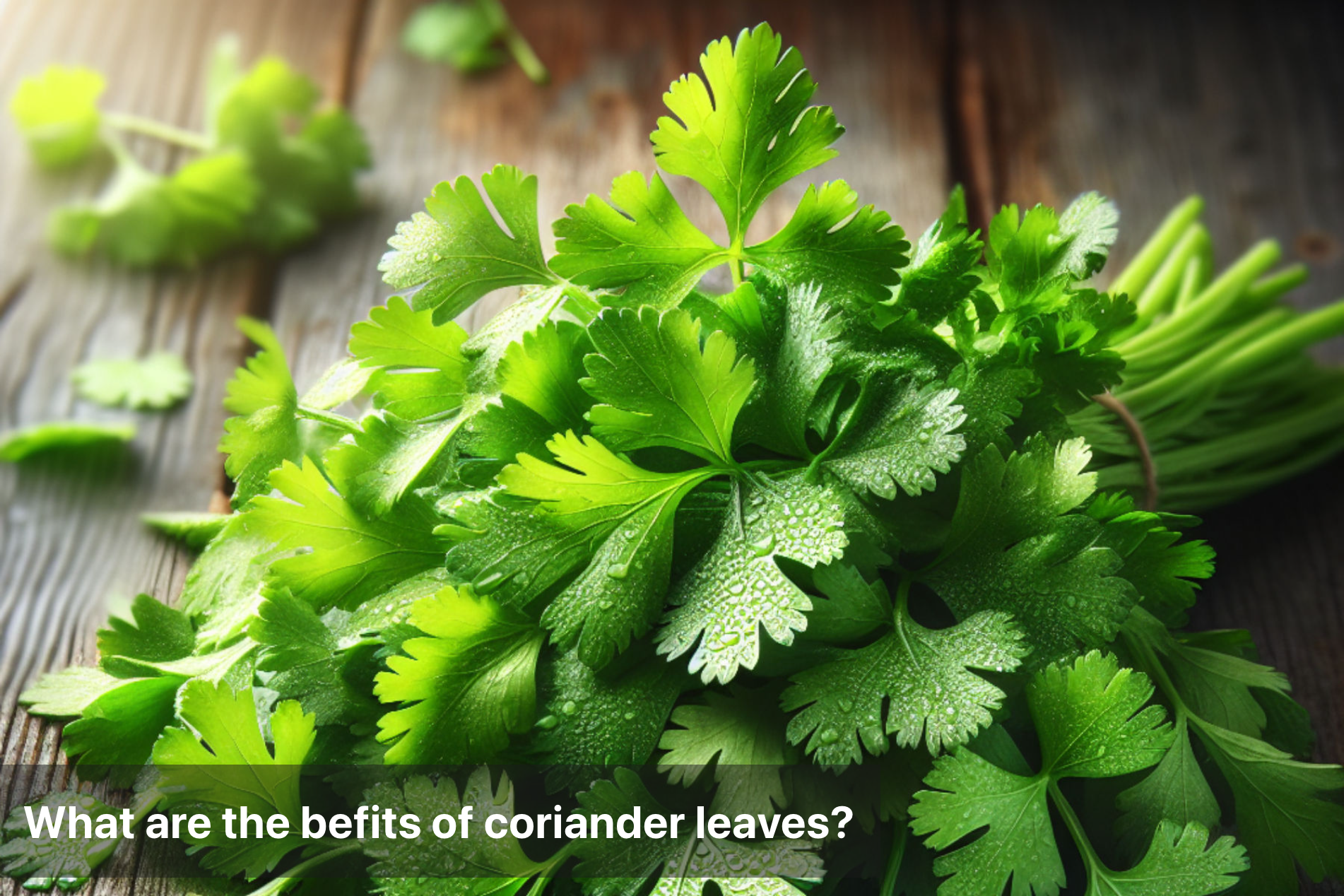
What are the befits of coriander leaves?
Coriander leaves, also known as cilantro, are widely appreciated for their refreshing flavor and vibrant green color. They add a distinct taste to a variety of dishes, especially in cuisines such as Mexican, Indian, and Middle Eastern.
From salads to salsas, these leaves are incredibly versatile. You can use them as a garnish or blend them into sauces, dressings, or marinades. Not only do they elevate the culinary experience, but they also come with a range of nutritional benefits. Coriander leaves are rich in vitamins A, C, and K, along with essential minerals like potassium and iron.
Additionally, their antioxidant properties contribute to the overall health benefits of coriander. Incorporating these leaves into your meals can improve digestion, boost immunity, and provide anti-inflammatory effects. With such an impressive profile, the benefits of coriander extend beyond flavor, making it a valuable addition to any diet. By understanding the advantages of coriander leaves, you can better appreciate their role not only in cooking but also in enhancing your wellness.

Nutritional Profile of Coriander Leaves
|
Nutrient |
Amount per 100g |
|---|---|
|
Calories |
23 kcal |
|
Carbohydrates |
3.67 g |
|
Protein |
2.13 g |
|
Fat |
0.52 g |
|
Calcium |
67 mg |
|
Iron |
1.77 mg |
|
Magnesium |
26 mg |
|
Vitamin C |
27.0 mg |
Benefits of Coriander Leaves:
-
Helps Prevent Anemia: The iron content in coriander leaves can aid in preventing iron-deficiency anemia by supporting red blood cell production.
-
Helps Relieve Menstrual Discomfort: Coriander leaves can aid in easing cramps and bloating during menstruation due to their anti-inflammatory effects.
-
Promotes Liver Health: Coriander leaves have hepatoprotective properties, supporting liver detoxification and helping protect against liver damage.
-
Reduces Bad Cholesterol: Coriander has the ability to reduce LDL cholesterol levels, supporting overall cardiovascular health.
-
Balances Hormones: Coriander leaves may assist in regulating hormones, especially in women, by supporting overall endocrine function.
-
Improves Kidney Function: Coriander has diuretic properties, promoting better kidney function and helping reduce fluid retention.
Culinary Uses and Recipes with Coriander Leaves
-
Coriander Smoothie
-
Ingredients: Fresh coriander leaves, yogurt, cucumber, mint, lime juice, and honey.
-
Preparation: Blend the ingredients into a refreshing smoothie to kick-start your day.
-
Coriander Pesto
-
Ingredients: Fresh coriander leaves, garlic, lemon juice, olive oil, and nuts (cashews, pine nuts, or walnuts).
-
Preparation: Blend all ingredients together to make a zesty coriander pesto, perfect for pasta or sandwiches.
-
Coriander Vegetable Stir-Fry
-
Ingredients: Mixed vegetables (carrots, beans, peas), coriander leaves, garlic, onions, soy sauce, and spices.
-
Preparation: Stir-fry the vegetables and finish with fresh coriander for a burst of flavor.
Tips for Storing Coriander Leaves:
-
Store in the Refrigerator: Place fresh coriander in a damp paper towel, put it in a zip-lock bag, and store it in the fridge to keep it fresh for up to a week.
-
Avoid Washing Before Storage: Store coriander leaves unwashed to prevent excess moisture that can cause them to wilt quickly.
-
Use a Water Jar: Trim the stems and place coriander in a jar with water, covering the leaves with a plastic bag, and store it in the fridge to extend freshness for up to 10 days.
-
Keep Away from Ethylene-Producing Fruits: Store coriander away from fruits like apples and bananas, which release ethylene gas that can accelerate wilting.
-
Store in a Herb Keeper: Use a herb keeper to store coriander, which keeps it hydrated and fresh for up to two weeks in the refrigerator.

Unlocking the Health Potential of Coriander Leaves
Coriander leaves offer a range of impressive benefits that you can easily incorporate into your daily meals. These vibrant green leaves not only enhance the flavor of dishes but also come packed with essential nutrients. From aiding digestion to providing anti-inflammatory effects, the benefits of coriander leaves are significant. Many studies suggest that regular consumption could contribute to better overall health.
Coriander leaves are rich in vitamins and antioxidants, which help protect the body from oxidative stress. Additionally, their potential role in managing blood sugar levels can be especially beneficial for those with diabetes.
If you haven't considered including coriander in your diet, now is a great time to start. Whether you sprinkle them on salads, blend them into sauces, or use them as a garnish, the ways to enjoy coriander leaves are versatile. Embracing these leafy greens can lead to a healthier lifestyle. So next time you are preparing a meal, remember the myriad of coriander leaf benefits waiting to enhance both your dishes and your well-being.
FAQs
-
Are there any substitutes for coriander leaves?
If you don't have coriander leaves, you can use parsley as a substitute, although it will provide a different flavor. For a closer match in flavor, you can also consider using cilantro paste or dried coriander.
-
How do I wash coriander leaves?
To wash coriander leaves, gently rinse them under cold water, ensuring you remove any dirt or impurities. You can also soak them in a bowl of water for a few minutes before rinsing.
-
Are there any side effects of consuming coriander leaves?
While coriander leaves are generally safe to eat, some individuals may experience allergic reactions or digestive issues. It's best to consult a healthcare professional if you have concerns.
This Blog post is an initiative by Lo! Foods, to provide accurate and Nutritionist / Doctor approved information related to Health. Lo! Foods is India's leading brand for Everyday Functional Foods. Foods designed for specific Health conditions or Needs. Lo! Foods also runs India's largest range of Low Carb Healthy Cloud Kitchens, under the brand names of Lo!, ProteinChef, ATH (All Things Healthy) and DiabeSmart.









Leave a comment
Your email address will not be published.